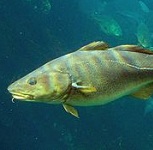 The UK Government has prevented an automatic cut in quotas for North Sea cod and the number of days that fishermen are allowed to spend at sea, following the latest round of negotiations in Brussels.
The UK Government has prevented an automatic cut in quotas for North Sea cod and the number of days that fishermen are allowed to spend at sea, following the latest round of negotiations in Brussels.
On 18 December DEFRA announced: "Fishermen were facing severe reductions to the amount of time they could spend at sea catching their quota as part of the Cod Recovery Plan. Additionally, they were also facing automatic reductions in the amount of cod they could catch in the North Sea. The planned reductions would have threatened the livelihoods of UK fishermen and led to increased discards."
According to DEFRA, the UK joined other member states in agreeing to remove the 'unscientific' automatic cuts and instead use the best available evidence to set quota levels and the amount of time fishermen can spend at sea.
Fisheries Minister Richard Benyon said: "I have been arguing for a long time that reducing the amount of time that fishermen have to catch their cod quota is bad for sustainability as it forces fishermen to catch closer to shore, often on spawning grounds.
"That is why this change is a major step forward, as it will allow cod quota and the amount of time fishermen can spend at sea to be based on solid scientific evidence rather than an out-of-date plan.
"What we have negotiated today has removed the immediate threat of automatic reductions but we will continue to work with the EU Parliament to reform the broken Common Fisheries Policy."
Scotland's fisheries secretary Richard Lochhead also welcomed the news. He told STV News: "This is a very significant and welcome stance by ministers fed up with lawyers telling them why common sense can't prevail. If the rest of the negotiations go as planned then our fishermen and our fish stocks will benefit.
"The lawyers who said there was no way round this have been rebuffed by fishing ministers, who have run out of patience with a plan that is so incredibly inflexible."
Picture by Hans Petter Fjeld, from Wikipedia